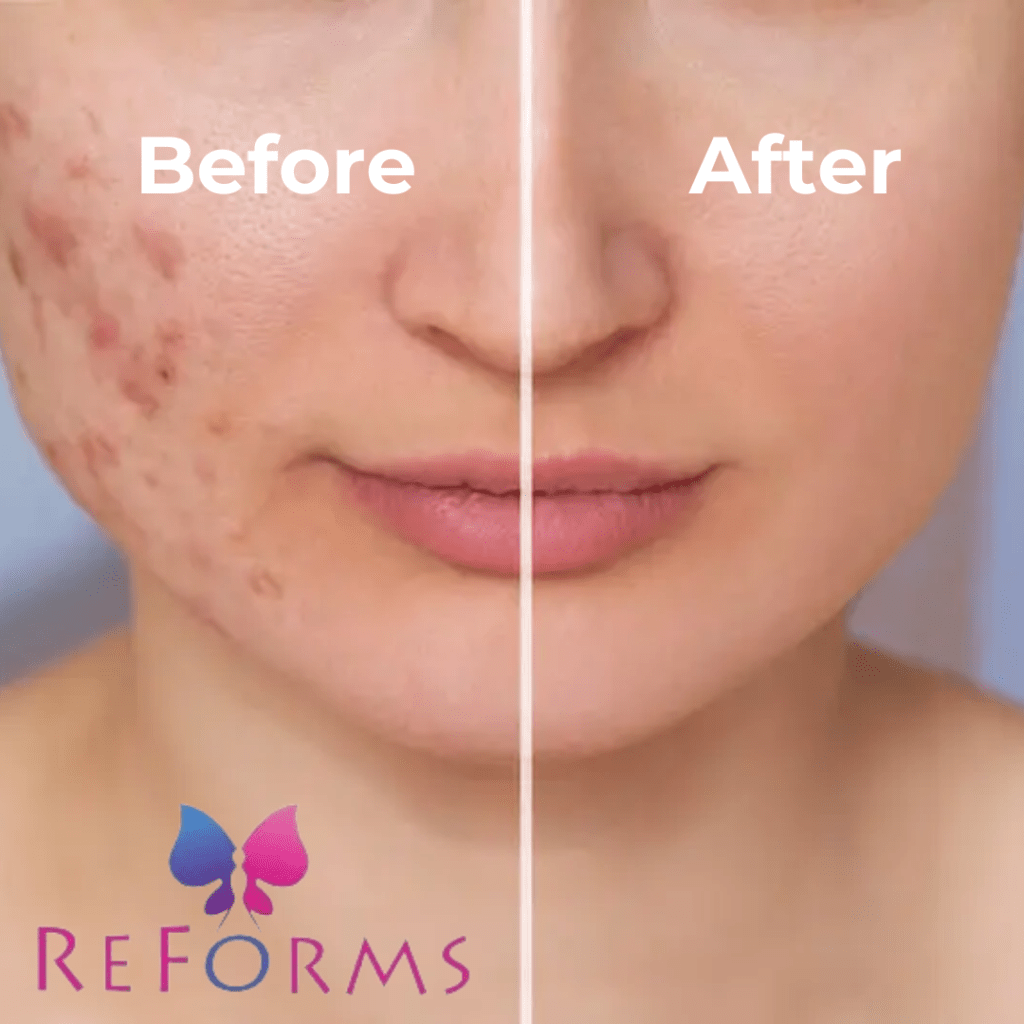Acne scars can be particularly challenging for individuals with black skin, not only due to the scars themselves but also because of the potential for hyperpigmentation. Fortunately, advancements in dermatological treatments have paved the way for effective solutions tailored to diverse skin types. Here, we explore the best treatments for acne scars on black skin, emphasizing both traditional and innovative approaches.
Understanding Acne Scars
Before discussing treatments, it’s essential to recognize the different types of acne scars:
- Atrophic Scars: These are flat, sunken scars that result from a loss of collagen. They often manifest as ice-pick or boxcar scars.
- Hypertrophic Scars: Raised and thickened scars caused by excess collagen production during the healing process.
Black skin can also be prone to post-inflammatory hyperpigmentation (PIH), where dark spots remain after acne has healed. This requires careful treatment to avoid worsening pigmentation.
Effective Treatments for Acne Scars
1. Chemical Peels
Chemical peels use acids to exfoliate the skin, promoting the growth of new skin cells. For black skin, gentle chemical peels such as glycolic acid or salicylic acid can effectively reduce the appearance of scars and hyperpigmentation. It’s crucial to consult a dermatologist to choose the right strength and type to minimize risks of irritation or discoloration.
2. Microneedling
Microneedling involves using fine needles to create micro-injuries in the skin, stimulating collagen production. This treatment is particularly effective for atrophic scars and can help improve skin texture. It is safe for darker skin tones, but it’s important to seek a qualified professional who understands the unique needs of black skin.
3. Laser Therapy
Fractional laser treatments can target deeper layers of skin, helping to reduce the appearance of scars and promote skin renewal. Options like the Nd
laser are effective for darker skin tones, as they are less likely to cause hyperpigmentation. Again, consultation with a skilled dermatologist is key.
4. Topical Treatments
a. Retinoids:
Topical retinoids can help promote cell turnover and improve the texture of the skin, reducing the visibility of scars over time.
b. Vitamin C:
Vitamin C serums can brighten skin and help fade hyperpigmentation, making them an excellent addition to your skincare routine.
c. Silicone Gel Sheets:
These can be beneficial for hypertrophic scars, helping to flatten and smooth the appearance of raised scars over time.
5. Dermal Fillers
For deeper atrophic scars, dermal fillers can be an immediate solution. These fillers add volume beneath the skin, making scars less noticeable. This option requires periodic maintenance but can yield excellent results.
6. Lifestyle and Home Care
- Sun Protection: Always apply sunscreen to protect healing skin from UV rays, which can worsen pigmentation.
- Hydration and Nutrition: A balanced diet rich in vitamins and antioxidants can support overall skin health. Hydration is also crucial for skin recovery.
- Gentle Skincare: Use mild cleansers and avoid harsh scrubs that can irritate the skin and exacerbate scarring.
Conclusion
Dealing with acne scars on black skin requires a thoughtful approach that acknowledges the unique characteristics of melanin-rich skin. With the right combination of treatments—ranging from chemical peels and microneedling to targeted topical solutions—it’s possible to significantly improve skin texture and tone. Always consult with a dermatologist experienced in treating diverse skin types to create a personalized plan that addresses your specific concerns.
Looking For a Best Acne Scar Treatment Clinic in Noida, look no further than Reforms for more details, please contact us!
Call us for Appointment :- +91-9810866966


